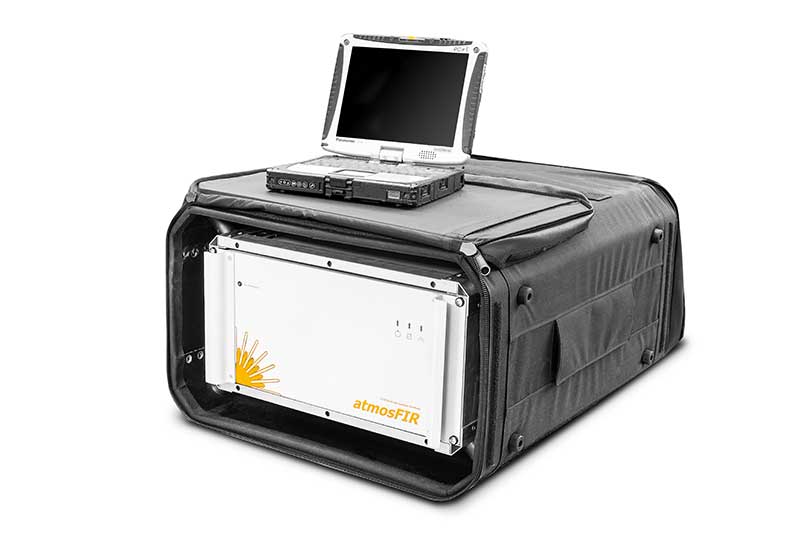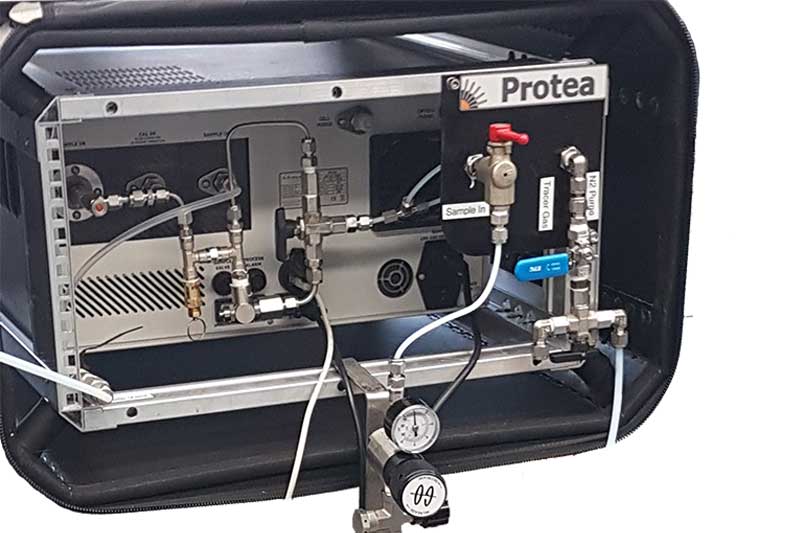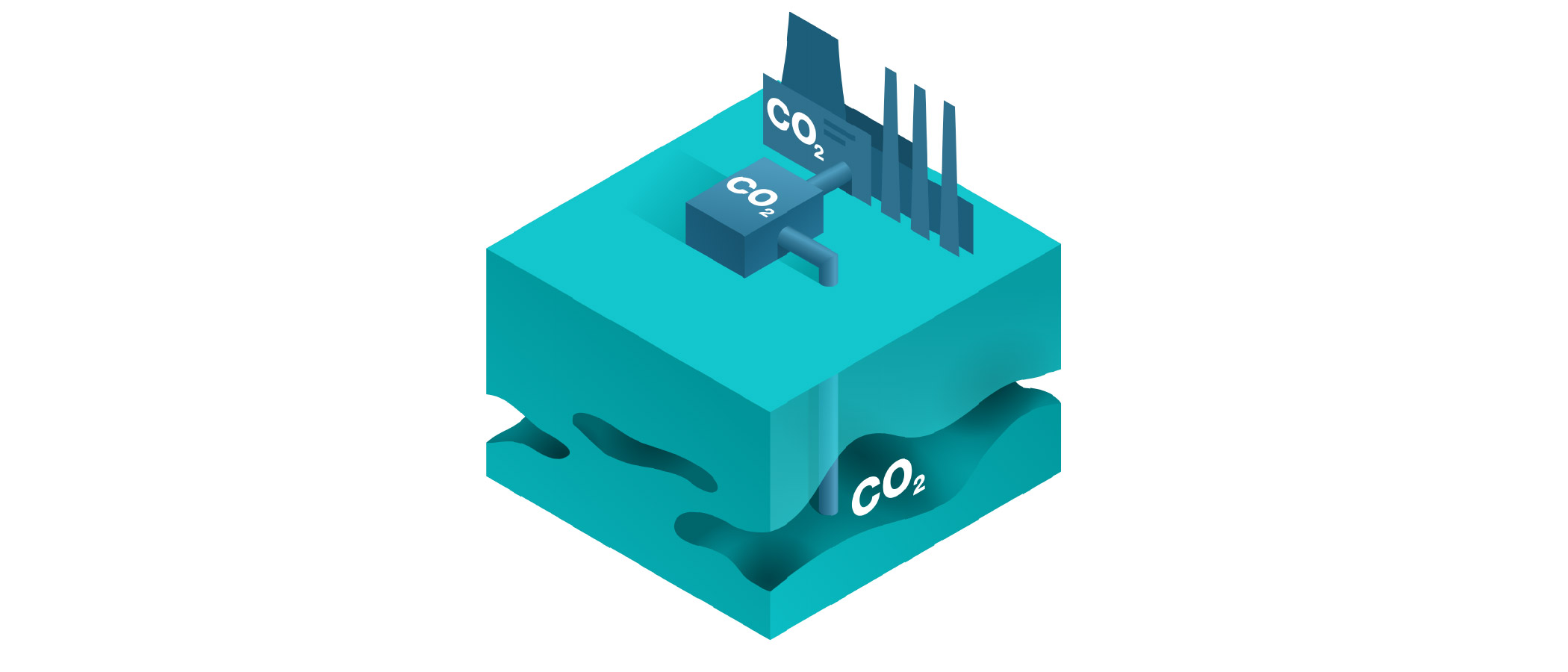Protea’s atmosFIR FTIR gas analyser has proven a valuable tool in research into the effective storage of Carbon Dioxide (CO2) in the North Sea.
Carbon Capture and Storage (CCS) is a key technology to reduce carbon dioxide (CO2) emissions from industrial processes in a feasible, substantial, and timely manner. For geological CO2 storage to be safe and reliable, robust strategies for CO2 leakage detection, quantification and management are crucial. The STEMM-CCS (Strategies for Environmental Monitoring of Marine Carbon Capture and Storage) project aimed to provide techniques and understanding to enable and inform cost-effective monitoring of CCS sites in the marine environment. A controlled CO2 release experiment was carried out in the central North Sea, designed to mimic an unintended emission of CO2 from a subsurface CO2 storage site to the seafloor.
Protea’s model atmosFIR FTIR gas analyser was used on board the RRS James Cook to measure the molar fractions of CO2, SF6, C3F8 and CH4 in the discrete gas samples collected during the release experiment. The FTIR was equipped with a custom-made sample injection system allowing reference gases to be injected.


